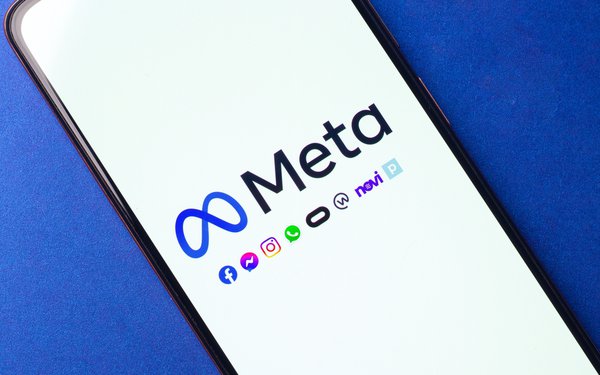
Meta’s stock leapt nearly 20%
in after-hours trading after CEO Mark Zuckerberg declared in its Q4 2022 earnings report that 2023 will be a “year of efficiency” for the tech giant.
“Our
management theme for 2023 is the ‘Year of Efficiency’ and we’re focused on becoming a stronger and more nimble organization,” Zuckerberg stated.
Meta’s stock price dropped 64% in 2022, but began to recover at year’s end. Yesterday, its price closed at $153.12 in regular trading, down 52% over the past year.
Investors also welcomed Meta’s announcement of a $40-billion stock buyback and higher-than-expected Q4 revenue ($32.17 billion versus $31.53 billion expected).
Due
to continued advertising challenges — including competition from TikTok and some continued targeting effects from Apple’s iOS privacy policy changes, despite progress on Meta’s part
— reported revenue was still down 4% from the year-ago quarter. That made this Meta’s third consecutive quarter of revenue declines, and its first full year with a revenue decline (down
1%).
advertisement
advertisement
While Meta’s ad revenue was actually up by 2% in constant currency terms, and Alphabet and Amazon won’t report their Q4 earnings until later today,
digital advertising overall “almost certainly grew at a much faster pace” than 2%, Brian Wieser reportsin his Madison and Wall newsletter,
bearing the same name as his new consultancy.
Noting that the skew of its advertising base can impact any company’s growth rate disproportionately, Wieser,
formerly GroupM's global president of business intelligence, says that while Meta does not provide specific details into these segments, it did report that online commerce declines slowed relative to
the third quarter. “To the extent that online commerce-related advertising accounts for a significant share of the company’s revenue, ecommerce-specific weakness is likely responsible
for many percentage points of underperformance that is unique to Meta vs. other sellers of digital advertising,” he writes.
While Meta executives said they are focusing on
driving ad inventory supply and improving performance — and reported that advertisers saw a more than 20% lift in conversions versus 2022 and average price per ad decreased 22% —
Meta’s performance metrics do not necessarily match the performance definitions and metrics used by large marketers that are making media buys across multiple media channels, Wieser
adds.
Meta also reported that it appears that click-to-message ads, primarily in WhatsApp and Messenger, are driving incremental platform demand, and Wieser estimates that this
expanded pool of customers may have generated $7 billion in revenue and possibly a couple of points of growth.
On a non-constant-currency basis, Meta would break the revenue
decline pattern in Q1 2023 if it achieved the high end of its guidance of $26 billion to $28.5 billion (Q1 2021 revenue was $27.9 billion). But Zuckerberg cautioned that while Meta does not expect
continued YoY revenue declines, it is unlikely to return to its historic levels of revenue growth of “20%, 30% compound or a lot more every year.”
Q4 earnings were
$4.65 billion, or $1.76 per share — down 55% from $10.29 billion, or $3.67 per share, in the year-ago quarter, and missing analysts’ average expectation of $2.26 per share.
Still, analysts and investors seemed focused on earnings and the tempered growth expectation than on the promise of greater efficiency.
While Q4 expenses ($25.8 billion)
were 22% higher year-over-year, Meta lowered its projected 2023 expenses to $89 billion to $95 billion, down from its previous projection of $94 billion to $100 billion. The company, which cut 11,000
employees in November, will be “proactive” about discontinuing projects that are not performing or are no longer “crucial,” and will remove middle-management layers to
streamline decision-making, Zuckerberg said.
Citing more efficient data centers to handle its artificial intelligence initiatives, Meta also lowered its capital expenditures
projections for the year, to $30 billion to $33 billion, versus a previous range of $34 billion to $37 billion.
But it said it has no plans to cut investment in the Reality Labs
unit that develops the hardware and software for its core metaverse-domination strategy, where operating losses rose to $4.28 billion in Q4, from a loss of $3.3 billion a year ago.
Meta
must now focus on returning to positive territory and stabilizing its core Facebook and Instagram platforms, Insider Intelligence analyst Debra Aho Williamson told CBS News. “And with losses at
its VR division mounting,” Zuckerberg “is going to have to accept an unfortunate reality: Virtual worlds are simply not what businesses or consumers want right now.”
On the positive side, Facebook’s daily active users rose 4% year-over-year in Q4, to hit 2 billion for the first time, monthly active users rose to 2.96 billion, and average revenue per
user was $10.86 (versus $10.63 expected by analysts). Monthly active users across Facebook, Instagram, WhatsApp and Messenger rose to 3.74 billion.